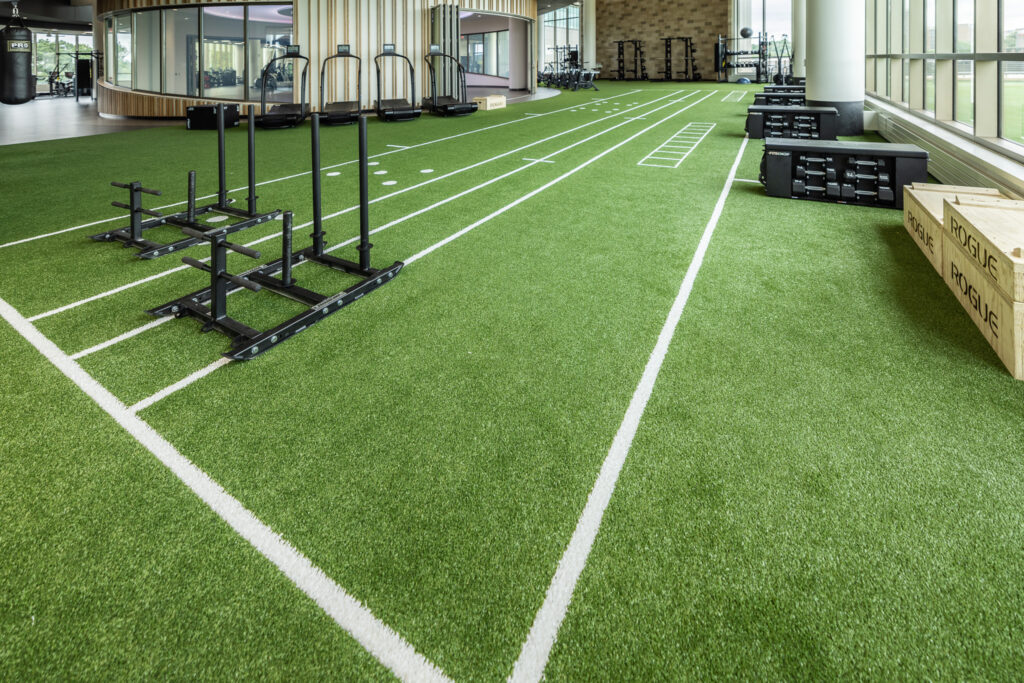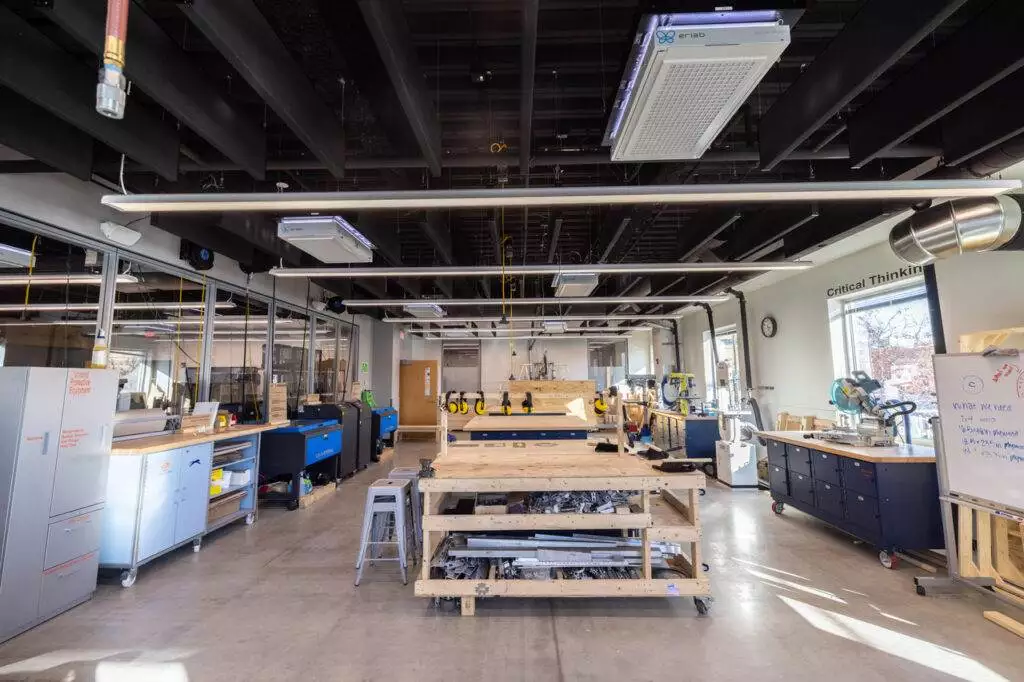Blogs & News
- Category: Laboratory
- DATE: November 1, 2023
A Guide to Laboratory Casework: Choosing the Right Casework for Your Space
Laboratory casework is a fundamental component of any well-designed and working laboratory space. It is crucial in ensuring functionality, safety, and efficiency within the laboratory environment.
Whether you are planning to set up a new laboratory or renovate an existing one, selecting the correct laboratory casework is a decision that should not be taken lightly.
This comprehensive guide will explore what laboratory casework is, why it is necessary, and what factors to consider when designing a laboratory space.
What Is Laboratory Casework?
Laboratory casework refers to the cabinetry, countertops, and storage solutions specifically designed and built for laboratory use. It is the backbone of a functional laboratory, providing an essential workspace for research, experimentation, and analysis.
Laboratory casework is not your typical office furniture — it is engineered to meet the unique requirements of a laboratory setting, where precision, durability, and safety is paramount.
Why Is Laboratory Casework Significant?
Laboratory casework is the foundation of any lab environment. Here are some reasons why it’s a must in any laboratory.
Functionality
Laboratory casework is essential for creating a functional workspace. It provides storage for equipment, chemicals, and supplies while offering ample work surfaces for experiments and research activities. The design and layout of laboratory casework can significantly impact the workflow and efficiency of laboratory operations.
Safety
Safety is a top priority in laboratory settings. High-quality laboratory casework should be selected based on the chemicals and quantity of chemicals used in the laboratory environment. Properly designed casework can incorporate safety features such as fume hood integration, eye wash stations, and emergency shut-off systems.
Organization
Efficient organization is critical to a productive laboratory. Laboratory casework provides a systematic way to store and access equipment and chemicals. This order reduces the risk of contamination and ensures that researchers can easily find what they need.
Durability
Laboratory casework must withstand the harsh conditions of a laboratory, including exposure to chemicals, moisture, and constant use. Investing in durable casework ensures that your laboratory furniture will have a long lifespan. It also reduces the need for frequent replacement. A good measurement for durability of lab casework is SEFA 8. SEFA 8 is a performance-based standard used to assess the durability as well as safety and structural integrity of lab casework. Ask your laboratory casework suppliers if they provide SEFA 8 options.
What To Consider When Designing a Laboratory Space
Designing a laboratory space involves careful planning and consideration of various factors. Here are some key aspects to keep in mind:
• Purpose of the Laboratory: Understand the specific functions and activities that will take place in the laboratory. Different types of laboratories, such as chemistry, biology, or physics labs, may have unique requirements for casework and equipment.
• Layout and Workflow: Plan the laboratory layout to optimize workflow and efficiency. Consider the placement of workstations, laboratory fume hoods, sinks, and storage cabinets to create a logical and safe flow of activities.
• Materials and Finishes: Select materials for your laboratory casework carefully. Materials should be resistant to chemicals, moisture, and physical damage.
• Storage Needs: Assess your storage requirements for equipment, chemicals, and supplies. Customized storage solutions can maximize space and keep the laboratory organized.
• Safety Measures: Incorporate safety features such as emergency eyewash stations, fire extinguishers, and ventilation systems into the laboratory design. Fume hoods play a significant role in the safety of the laboratory environment. Ensure that the casework’s design can accommodate these safety measures.
• Compliance: Adhere to relevant safety and regulatory standards, such as those set forth by organizations like OSHA (Occupational Safety and Health Administration), ANSI (American National Standards Institute), and the International Organization for Standardization (ISO).
• Future Growth: Consider the potential for future expansion or changes in research needs when designing your laboratory space. Flexibility in casework design can accommodate evolving requirements.
Laboratory Casework Materials
Choosing materials for laboratory casework is critical to ensure durability, safety, and functionality. Here are some common materials used in laboratory casework:
• Plastic Laminate: Plastic laminate is a cost-effective and versatile option. It resists chemicals, moisture, and abrasion. It is available in a variety of colors and finishes.
• Stainless Steel: Known for its durability and resistance to corrosion, stainless steel is an excellent choice for laboratories that handle corrosive substances. It is easy to clean and maintain.
• Phenolic Resin: Phenolic resin is more resistant to chemicals, moisture, and impact. It is suitable for laboratory casework and countertops.
• Wood: Wood casework in a laboratory setting offers several benefits. Its natural aesthetic appeal creates a warm and inviting workspace, contributing to a comfortable environment for employees, researchers, or students. Wood can be customized to meet specific design and functional requirements, providing flexibility in layout and finishes. There are high-quality wood casework options that are SEFA rated based on SEFA 8 testing for durability, safety, and structural integrity.
Laboratory Casework Storage
Efficient storage solutions are essential for maintaining an organized laboratory space. Consider the following storage options when designing your laboratory casework:
• Cabinets: Whether base, wall, sink, corner, or tall cabinets, there is a suitable cabinet for every laboratory requirement. They provide open or enclosed storage options for chemicals, equipment, and glassware.
• Drawers: Drawers are ideal for storing laboratory supplies and tools.They should be sturdy and equipped with locks if necessary. Depending on what you are storing, make sure you select drawer slides with an appropriate load rating to ensure the safety of personnel and for the protection of valuable equipment. Consider if your drawers have passed the SEFA 8 testing for drawers including a drawer static test, drawer impact test, drawer internal rolling impact test, and the drawer cycle test.
• Shelving: Open shelving units are suitable for items that need to be easily accessible. Use chemical-resistant materials for shelving to prevent corrosion.
• Mobile Storage: Mobile carts and storage units offer flexibility and can be moved around the laboratory as needed.
• Fume Hood Integration: Consider integrating storage solutions below your laboratory fume hood to optimize space and keep essential items within reach.
How H2I Group Can Help Deliver the Best Laboratory Space
Choosing the right laboratory casework and ensuring a well-designed laboratory space can be complex, but H2I Group can provide expert guidance and solutions for your laboratory needs. We offer a range of services that can help you create the ideal laboratory environment:
• Consultation: Our experts work closely with you to understand your specific requirements and goals for the laboratory space. We partner with leading laboratory casework suppliers to provide the highest-quality casework materials.
• Quality Lab Casework Installation: Our team has extensive experience in lab casework installation. We adhere to industry standards and safety regulations in all our projects.
• Lab Equipment Installation: We also specialize in lab equipment installation. We ensure all laboratory equipment is properly installed and integrated into the space, maximizing functionality and safety.
Conclusion
Laboratory casework is a critical component of any laboratory space, and choosing the right casework is essential for functionality, safety, and efficiency.H2I Group and your architecture/design firm can assist you in creating the best laboratory space tailored to your needs. With our expertise and commitment to quality, you can confidently create a laboratory environment that supports your research and scientific endeavors.
Contact us today at (888) 239-8747 or [email protected] to get started.
recent blogs



GET STARTED
LET’S TALK ABOUT YOUR PROJECT TODAY
Are you in need of expert guidance for your building project? H2I Group’s experienced professionals are here to assist you with any questions or concerns you may have. Contact us today to learn more about our services and how we can help you achieve your goals.

